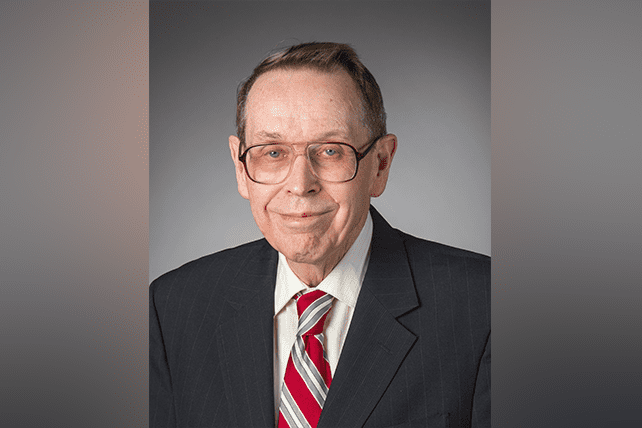Rather than insisting on the antagonism between the work of critical historical research and religious faith, Meier’s work demonstrated how faith and scientific reason could complement one another and lead to a deeper understanding of the history, culture and context of a sacred text. The “Jesus of History” and the “Christ of Faith” could co-exist.
His scholarship underscored the potential for Christian unity and cooperation in understanding the Scriptures among Christian denominations. Meier also served on an ecumenical dialogue between the Catholic Church and the Disciples of Christ for nearly two full decades.
“A Marginal Jew” came out in 1991 to wide acclaim, and the release of subsequent volumes in 1994, 2001, 2009 and 2016 cemented Meier’s reputation as a critical scholar for biblical research.
Pope Benedict XVI, who wrote a meditative theological trilogy on Jesus of Nazareth in the early 2000s, cited Meier’s work as a key inspiration for his own writing and thinking.
“From the immense quantity of literature on the dating of the Last Supper and of Jesus’ death, I would like to single out the treatment of the subject, outstanding both in its thoroughness and its accuracy, found in the first volume of John P. Meier’s book, “A Marginal Jew: Rethinking the Historical Jesus,” the Pope Emeritus wrote in the notes to his 2011 volume.
Benedict XVI elsewhere called Meier’s multi-volume work a “model of historical-critical exegesis.”
Meier retired from his position as the William K. Warren Professor of Theology at the University of Notre Dame in 2018. He continued to teach and work on the sixth volume of his “A Marginal Jew” project during his retirement. He was a greatly loved figure on campus. Colleagues called him “a Renaissance man” and “a prince of a person.”
Meier was a prolific preacher who quoted Scripture passages in English and Greek from memory. A beloved professor, Meier’s dry wit and wisdom entertained and delighted students, one of which was this author.
“It sounds nice, but — like so many nice sounding religious statements — is wrong,” went one of Meier’s classroom bon mots.
“Education is the process by which you unlearn everything you once knew,” was another.
“Professor Meier’s rigor and brilliance were matched by his kindness,” said doctoral student Jonathan Sanchez, who participated in Meier’s final doctoral seminar during the spring semester of 2021.
Several of his colleagues in the theology department expressed their grief at Meier’s passing.
“We deeply mourn the loss of our friend and mentor,” John Fitzgerald, professor in Christianity and Judaism in antiquity at the University of Notre Dame and a longtime colleague of Meier, said to Religion News Service via email. “He was a man of keen wit with an irrepressible sense of humor, but we shall continue to celebrate his life and scholarship for decades to come,” said Fitzgerald.
The Archdiocese of New York confirmed his funeral will take place at his alma mater, St. Joseph’s Seminary in Dunwoodie, on Saturday, October 22. Cardinal Timothy Dolan will preside.
As Meier frequently said, great works of biblical scholarship were often left unfinished. His sixth volume of “A Marginal Jew” remained unfinished at the time of his passing on Oct. 18, 2022.
This article originally appeared here.

